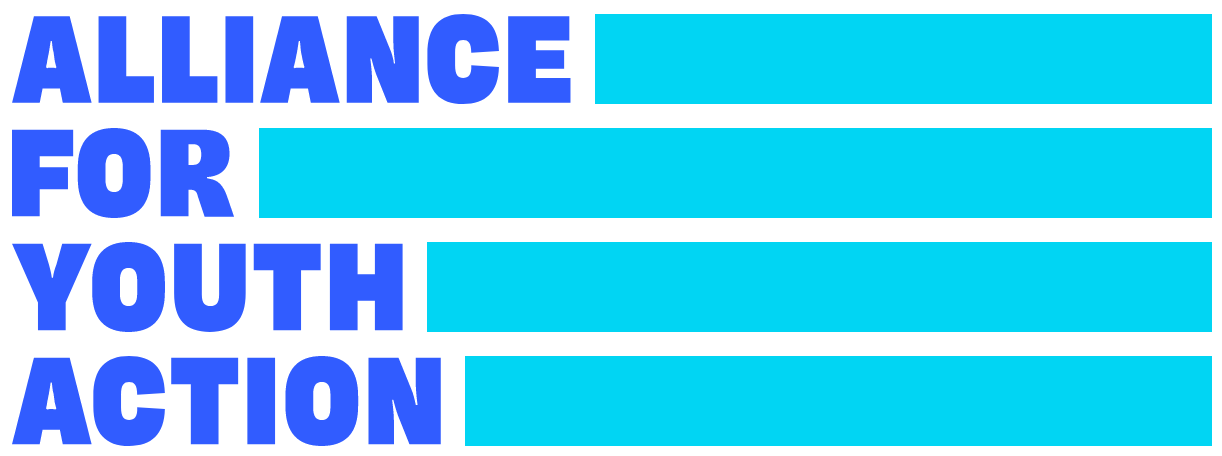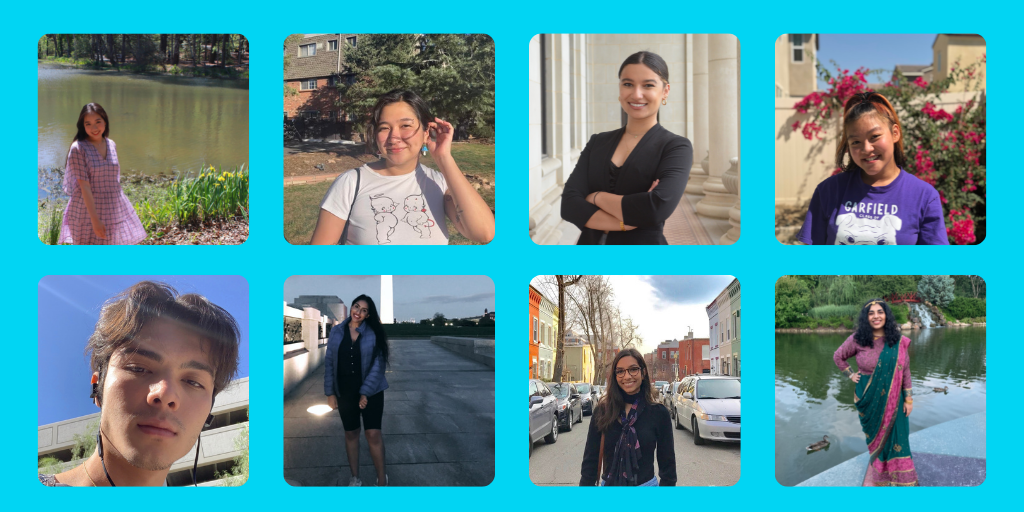We saw a major increase in Asian youth voter turnout in the 2020 election. This remarkable jump in turnout, the biggest increase among all groups by race, was fueled by the power of peer-to-peer organizing by young people who run local organizations like those in the Alliance Network. Youth organizers knew that to move our country forward it was critical to center young voters of color, including young Asian voters.
This month, we are featuring young Asian organizers in the Alliance Network who are building political power in their states during and beyond elections. Get to know them, learn about their stories, and how their identities influence their work.
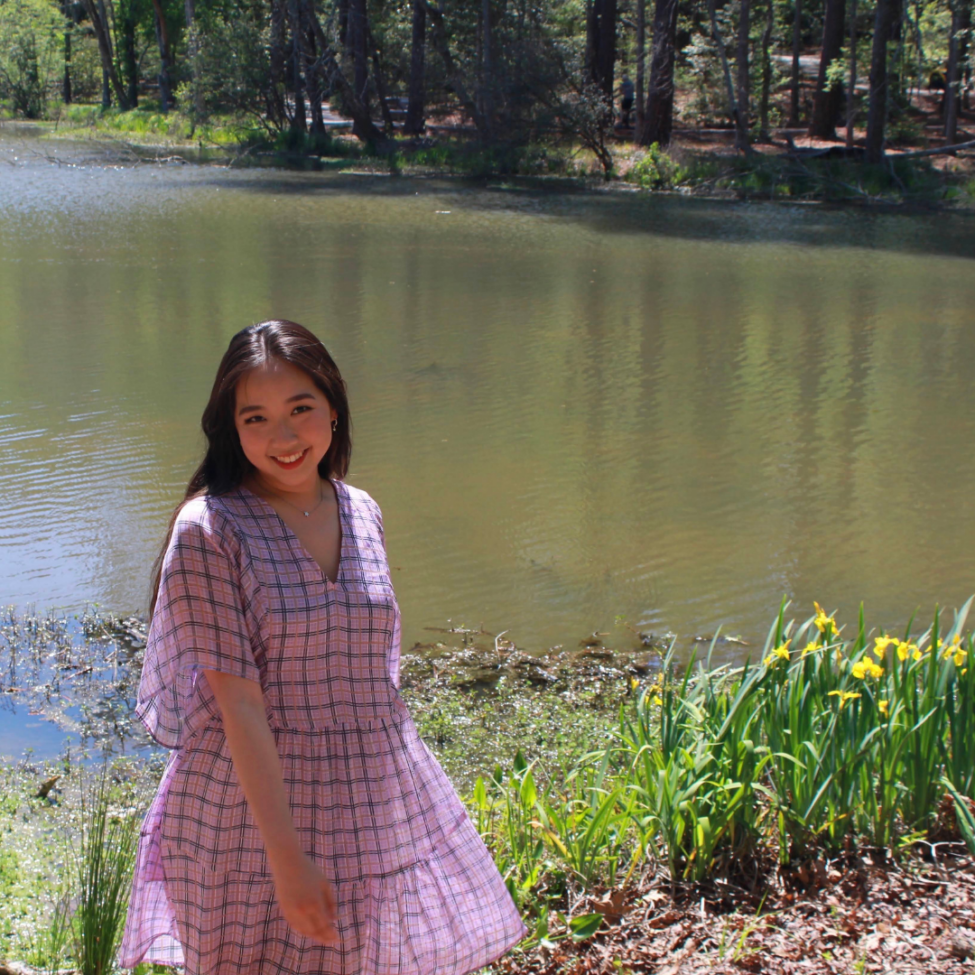
ERIN LEE
She/Her | Raleigh, NC
Youth Organizer at North Carolina Asian Americans Together (NCAAT)
▼ How do you organize in your community?
I currently work as the Youth Organizer at NCAAT (North Carolina Asian Americans Together). My role is to support the efforts of our Youth team in educating and empowering Asian American youth in North Carolina. In particular, I oversee our Youth Ambassadors program, a paid volunteer program for young Asian Americans to engage in and bring awareness to NCAAT’s work.
▼ How does your identity and heritage influence your organizing work?
On the worst days, being Korean American brings up a lot of complicated emotions that I channel into grace, empathy, and kindness for others who also feel like outsiders wherever they go. On the best days, pride and gratitude for my identity as a child of Korean immigrants (now American citizens) and as a third-culture kid drives my passion for action and service. The oppression I face and the privileges I have as a Korean American woman is something I think about very seriously and it impacts the way that I move through my work.
▼ When speaking directly with young AAPI voters, what do they say are the most important issues to them? What matters to you?
Many young AAPI voters tell me about their passion for environmental justice, healthcare access, and racial justice. I think the societal and cultural context speaks for itself and a lot of what young AAPIs are trying to solve are the issues that they see around them and online. They’ve been handed a lot of problems that they didn’t ask for. I think especially recently with the recent attention on anti-Asian violence, a lot of them have been reflecting on their place in American society and what it means to be Asian American.
▼ Is there a lot of AAPI representation in the communities you organize in? How does that impact how you organize? What are the challenges and opportunities because of this?
Since we are an Asian American organization, within our space at NCAAT, we definitely see more diverse representation of AAPIs. However, not every ethnic or identity group is always represented and outside of our own Asian American spaces, it is incredibly difficult to find AAPIs in the broader nonprofit and advocacy space. It makes us that much more cognizant of doing everything we can to include and uplift voices outside of our own. It is definitely uncomfortable, but it pushes us to keep going because we know how much work there is still left to be done.
▼ There was a massive jump in AAPI voter turnout last cycle. How did your work relate to this? Why do you think there has been such an increase in young AAPI voter turnout?
As I joined the organization after the elections, my part in the huge increase in AAPI voters showing up to the polls last cycle is limited to my own ballot and my role as poll worker. I think one big factor for this great AAPI turnout was the incredible work and effort that nonprofits and organizations all over the nation took to educate our communities and stir up their political interest. Secondly, more Asian immigrants who came over in the influx of Asian immigrants in the last two decades have become citizens and their children are growing up. These voters know that they have a voice and they’re going to make it heard.
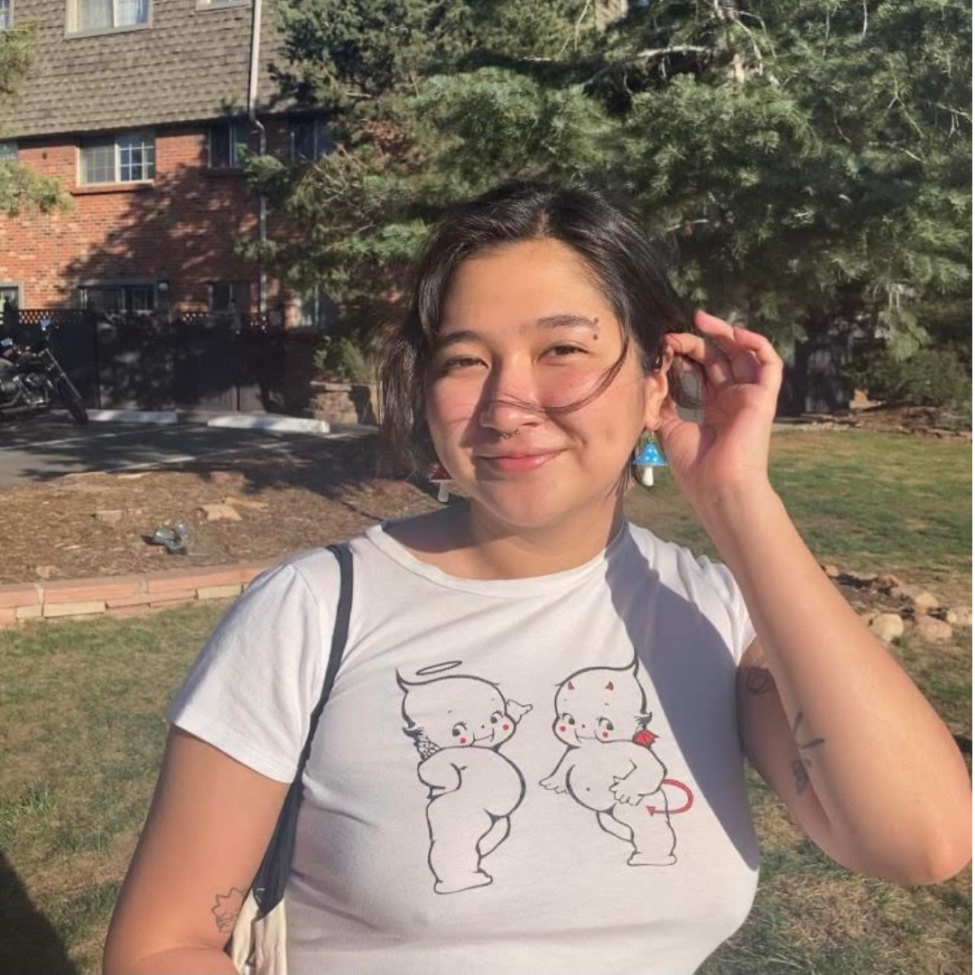
Ileana Rivera
She/Her | Boulder, CO
Organizational Fellow at New Era Colorado
▼ How do you organize in your community?
I organize with Boulder Valley Mutual Aid and Denver Community Fridges to combat food insecurity and provide gear to our unhoused neighbors in the greater Denver Area.
▼ How does your identity and heritage influence your organizing work?
As a BIPOC person with immigrant family members, we’ve always heard that you’re supposed to pull yourself up from the boot straps, which I do not agree with. The brightest future I can see, we’ll get there together.
▼ Is there a lot of AAPI representation in the communities you organize in? How does that impact how you organize? What are the challenges and opportunities because of this?
I think a lot about the model minority myth, and how many Asian Americans feel the pressure to achieve, rather than “complain”. But in reality, using your voice even at the lowest level of organizing is one of the most powerful things you can do. There is solidarity in numbers, and representation. The communities I organize in are predominately white spaces which is unfortunate because I feel like a lot of the work and emotional labor is put on BIPOC folks.
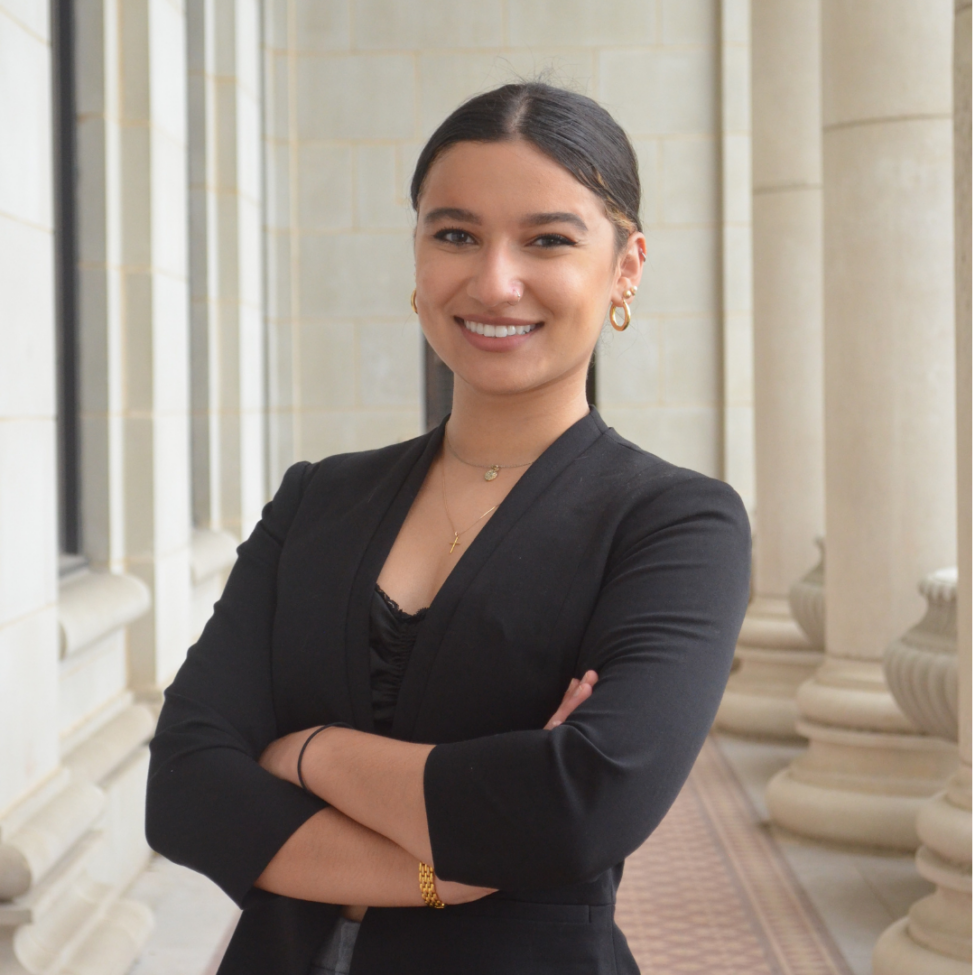
Kristina Samuel
She/They | San Antonio, TX
Civic Leadership Fellow at MOVE Texas
▼ How do you organize in your community?
For a little over a year, I have been organizing with MOVE Texas and am coming up on the 1 year anniversary of starting a chapter of the nonprofit at my University, Texas A&M. We have since then led a successful GOTV initiative on our campus and surrounding Brazos county area, have recruited active members involved in our community such as climate change lobbying and phone/text banking, expanded to a fully VDR trained officer team, and have established our presence as a student organization on one of the largest college campuses in the country. I personally have also served as a poll worker during a presidential election year and have testified in the Texas Senate this past February in front of the redistricting committee against gerrymandering. I seek to contribute as an individual and on behalf of the chapter I started at my university to broaden the impact of civic engagement and progressive policy advocacy in my community as much as I can.
▼ How does your identity and heritage influence your organizing work?
Identifying as a first generation Asian American has definitely played a role in my organizing, especially on my college campus. It is an interesting dynamic however, in being mixed race and not necessarily looking of Asian descent. I am half South Indian however, I have been mistaken to be of many different ethnicities, usually not of Asian heritage. It makes it hard to stay tied to my very prevalent Indian culture that I grew up with and feel as if the community supports me back. However, it has made me extremely self aware in the perceptions and preconceived notions that can be made about peoples’ identities and experiences. It constantly plays a role in organizing in that I attempt to create the most inclusive and safe spaces, even if it isn’t something that is considered “normal”. Although not easy, I believe that my identity has given me a unique insight that I am now proud to carry into my organizing work.
▼ When speaking directly with young AAPI voters, what do they say are the most important issues to them? What matters to you?
Some of the most important issues are recognition and awareness, both for the civic engagement process and simply representation of our leaders from the AAPI community, which there is a great lack of. Personally, seeing representation in our leaders is so empowering as it gives me hope that I too have the ability to pursue the things I am passionate about and be able to uplift underrepresented communities.
▼ Is there a lot of AAPI representation in the communities you organize in? How does that impact how you organize? What are the challenges and opportunities because of this?
Going to a PWI, I would have been inclined even six months from now, to say that there is definitely not. For the most part this holds true, but in collaborating with the Asian President’s Council, a student organization at my school, I have seen that there is a significant dynamic and diverse AAPI community that has passions and needs that must be addressed. The biggest challenge has been proving ourselves to be a prominent demographic on campus, but it has also given me the great opportunity to meet so many passionate and hardworking AAPI student leaders who strive to make real change in our community. I also am a Student Senator at my University, who ran as a RepresentAsian candidate. Part of my mission is to dedicate my work to representing the AAPI student body and this translates to the lens in which I organize with my nonprofit work.
▼ There was a massive jump in AAPI voter turnout last cycle. How did your work relate to this? Why do you think there has been such an increase in young AAPI voter turnout?
The common theme especially in this youngest voting generation is the dynamic need for change. In the AAPI youth community, our awareness of the lack of representation in our elected officials and policies with a general disregard for BIPOC communities has really led to a resurgence in our voter turnout. This, in combination with the recent rise of Anti-Asian hate crimes across the country has made the push to make our voices heard that much more imperative through civic engagement.
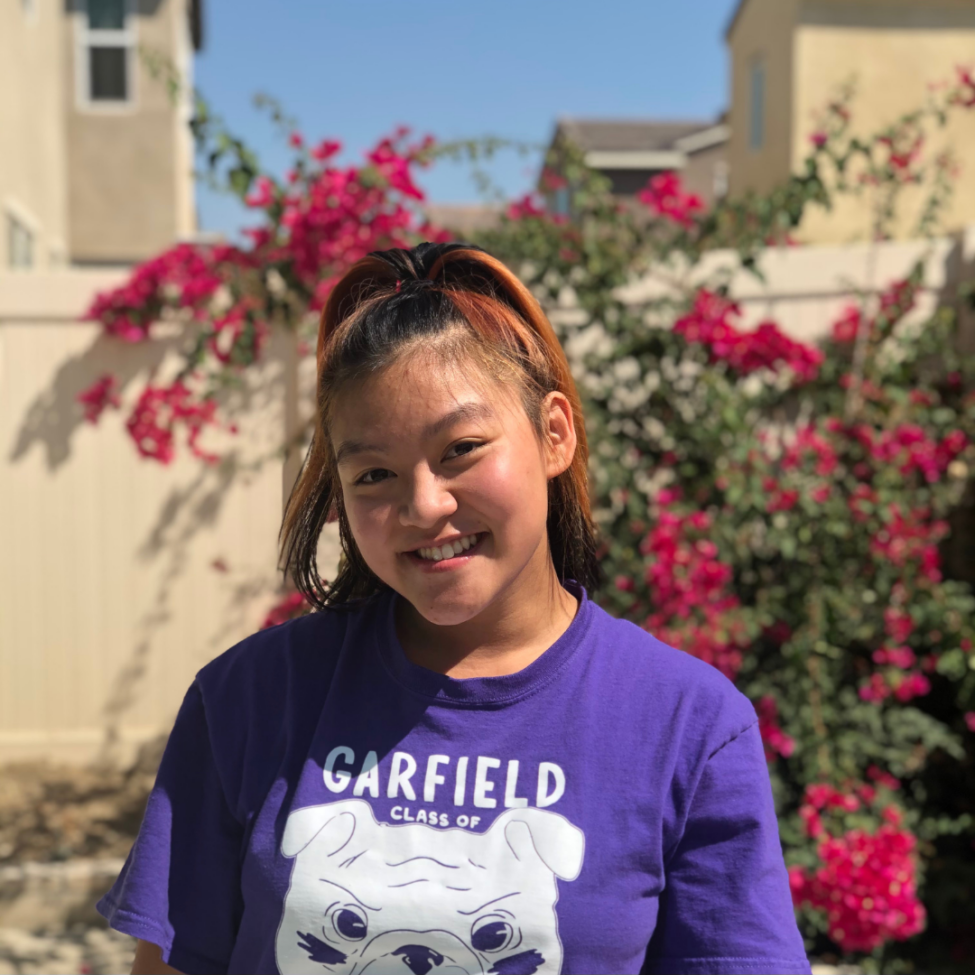
Linda Phan
She/Her | Seattle, WA
Legislative Intern and Organizer at the Washington Bus
▼ How do you organize in your community?
I have been an active community organizer ever since I began working with social justice movements in high school. Right now, I’m involved with the Emerald Youth Organizing Collective and Youth Voices for Justice, two prominent youth-led organizations focused on racial justice, abolition, and youth activism.
▼ How does your identity and heritage influence your organizing work?
Being Vietnamese has played a large role in my drive to pursue positive change for marginalized communities. As a byproduct of U.S. imperialism, war, and displacement, the trauma of systems of oppression across the globe has been felt dramatically by both myself and my family.
▼ When speaking directly with young AAPI voters, what do they say are the most important issues to them? What matters to you?
In accordance to the model minority myth, many AAPI voters feel uncomfortable speaking on issues that are important to them because they feel indebted to the U.S. for allowing them to seek refuge in a country that ironically played a large role in their displacement. However, many AAPI voters have rejected this sense of the model minority and spoken up against instances of racial injustice, especially against our own communities. Many have called attention towards instances of hate crimes targeting AAPI that go as far as to attack our elders. However, in my opinion, I wish other AAPI recognized that in order to stop Asian hate, we need to also have the same energy towards instances of racism that harms other communities, and recognize that such instances are not isolated to individuals but by the entire system of white supremacy that harms all people of color. These issues are central in my decisions when I vote.
▼ Is there a lot of AAPI representation in the communities you organize in? How does that impact how you organize? What are the challenges and opportunities because of this?
I wouldn’t say there’s a lot of AAPI representation because of an overlying fear of betraying a country that generally provides so much more opportunity than that of our homeland, and for the little representation we do have, it’s typically light-skinned East Asian individuals. This really impacts how I organize because it exposes the intense anti-Blackness and colorism within many AAPI spaces. This is challenging because it creates a clash of interests between AAPI organizers; when fighting against racism, we fail to acknowledge the racism in our own communities.
▼ There was a massive jump in AAPI voter turnout last cycle. How did your work relate to this? Why do you think there has been such an increase in young AAPI voter turnout?
I think it has to do with dismantling internalized guilt and fear around criticizing American politics. In addition, more youth are being involved in activism, which can also explain the AAPI voter turnout. The widespread disdain for the Trump presidency amongst several communities of color may have also served as a call to action for voters.
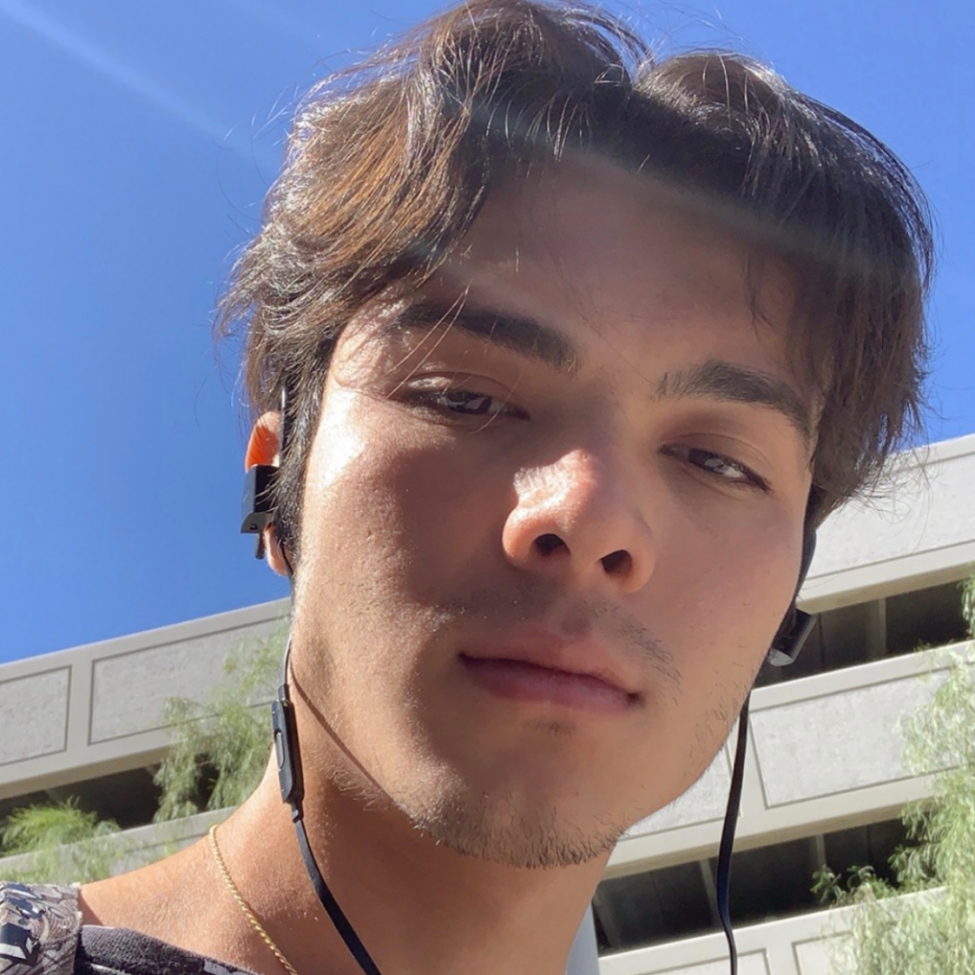
Louis Zheng ZhongYi Anderson
He/Him | Las Vegas, NV
Community Outreach Coordinator at the Asian Community Development Council (ACDC)
▼ How do you organize in your community?
I organize my community by encouraging fellow young API individuals to turn out to discuss what issues they most care about.
▼ How does your identity and heritage influence your organizing work?
As a first-generation immigrant, my heritage and identity play a considerable role in my work. Having this experience helps me better understand what members of the API community need.
▼ When speaking directly with young AAPI voters, what do they say are the most important issues to them? What matters to you?
When speaking with young voters, I notice many of them, myself included, have concerns about the amount of representation API individuals get in media and government.
▼ Is there a lot of AAPI representation in the communities you organize in? How does that impact how you organize? What are the challenges and opportunities because of this?
Representation for the API community has been steadily growing, and there has been a noticeable increase in the number of young API individuals who turn up to public events. The challenge we are now facing to continue fostering the growth of the API community is there is a separation in the different Asian communities, especially with older members.
▼ There was a massive jump in AAPI voter turnout last cycle. How did your work relate to this? Why do you think there has been such an increase in young AAPI voter turnout?
I would attribute the jump in API voter turnout last cycle to better voter education. Many API organizations are doing their best to get people registered and understand the importance of their vote and what it means for our community.
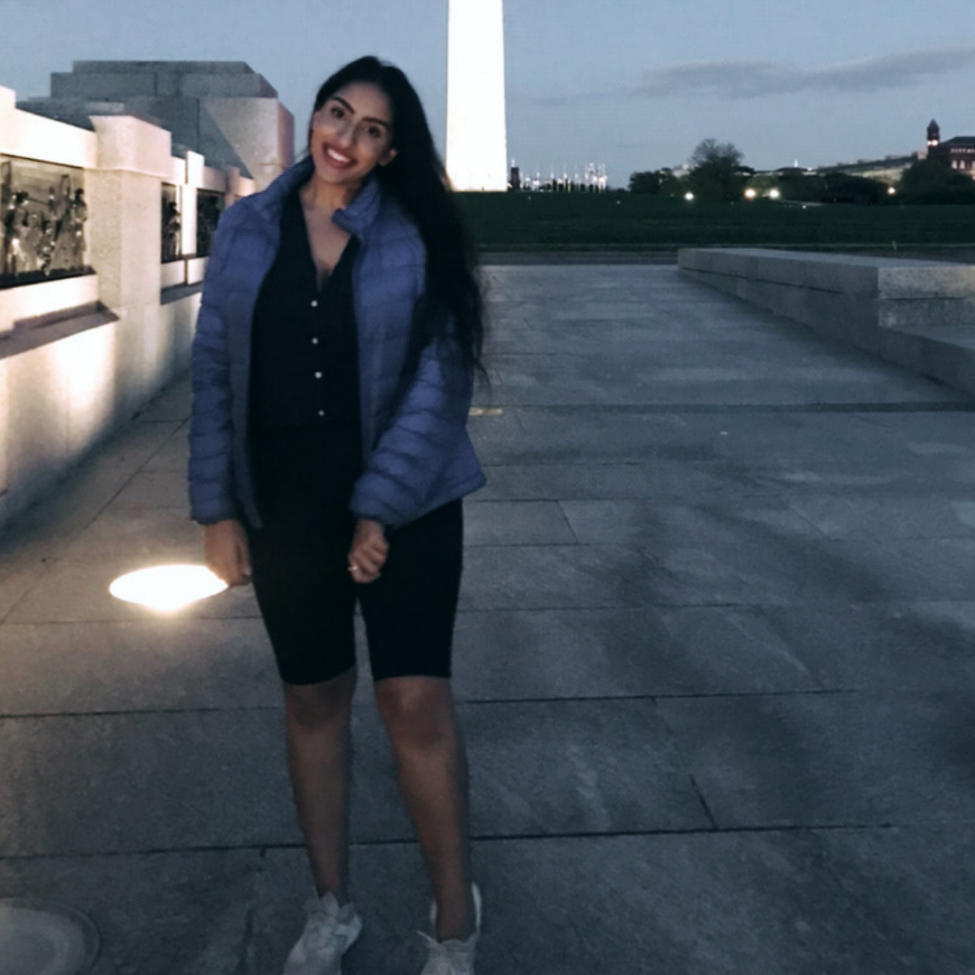
Meha Khanna
She/Her | Boulder, CO
Organizing Fellow at New Era Colorado
▼ How do you organize in your community?
I organize in my community by connecting with other People of Color that are underrepresented. At New Era, we make it a goal to support young people in creating change and progress. We do this by putting on events to educate and encourage others to do tangible work that supports antiracism and encourages community engagement.
▼ How does your identity and heritage influence your organizing work?
As a child of Indian immigrants, I am passionate about the right for all to gain citizenship. People of Color immigrants specifically are often disrespected in American society due to accents and other differences that come with being a non-naturalized person. This influences my organizing work because I have made it a goal to stand behind and support all immigrants in the United States. This means going to rallies, signing petitions in support of immigrants and being a strong and true ally. Seeing my parents be Othered to an even greater degree than I am simply because of their accent and language difference pushes my passion continuously for community work
▼ When speaking directly with young AAPI voters, what do they say are the most important issues to them? What matters to you?
Young AAPI voters want equal pay. Although AAPI have a larger accumulation of wealth, we are still paid less than white people when accounting for education. This is commonly due to discrimination. Young AAPI voters see the discrimination against our community not only in the recent COVID-19 based events but for centuries. I have also seen the ways the model minority myth has been harmful to the AAPI community. This pushes us into unrealistic standards and expectations as intelligence is not a race-based category. The mental health of AAPI has suffered for generations due to this myth which needs to be put to an end.
▼ Is there a lot of AAPI representation in the communities you organize in? How does that impact how you organize? What are the challenges and opportunities because of this?
There is not a lot of AAPI representation in the community I organize in, as Boulder, Colorado is a largely white community. This impacts how I organize because I often feel unsupported in my work within Boulder, Colorado itself. This creates challenges due to the feeling of being an outsider and the lack of ways my voice is supported and elevated. Regardless, New Era Colorado itself is a diverse work environment which has given me the opportunity to create community with other AAPI and BIPOC.
▼ There was a massive jump in AAPI voter turnout last cycle. How did your work relate to this? Why do you think there has been such an increase in young AAPI voter turnout?
This massive jump in AAPI voter turnout is extremely encouraging and exciting! My work relates to this because I work at the Colorado Democracy Challenge, getting high school students pre-registered to vote and encouraging voting age people to cast their ballot as well. I think there was such an increase in young AAPI voter turnout due to the blatant racism against our community by our own leadership that encouraged hate crimes and other racist behavior.
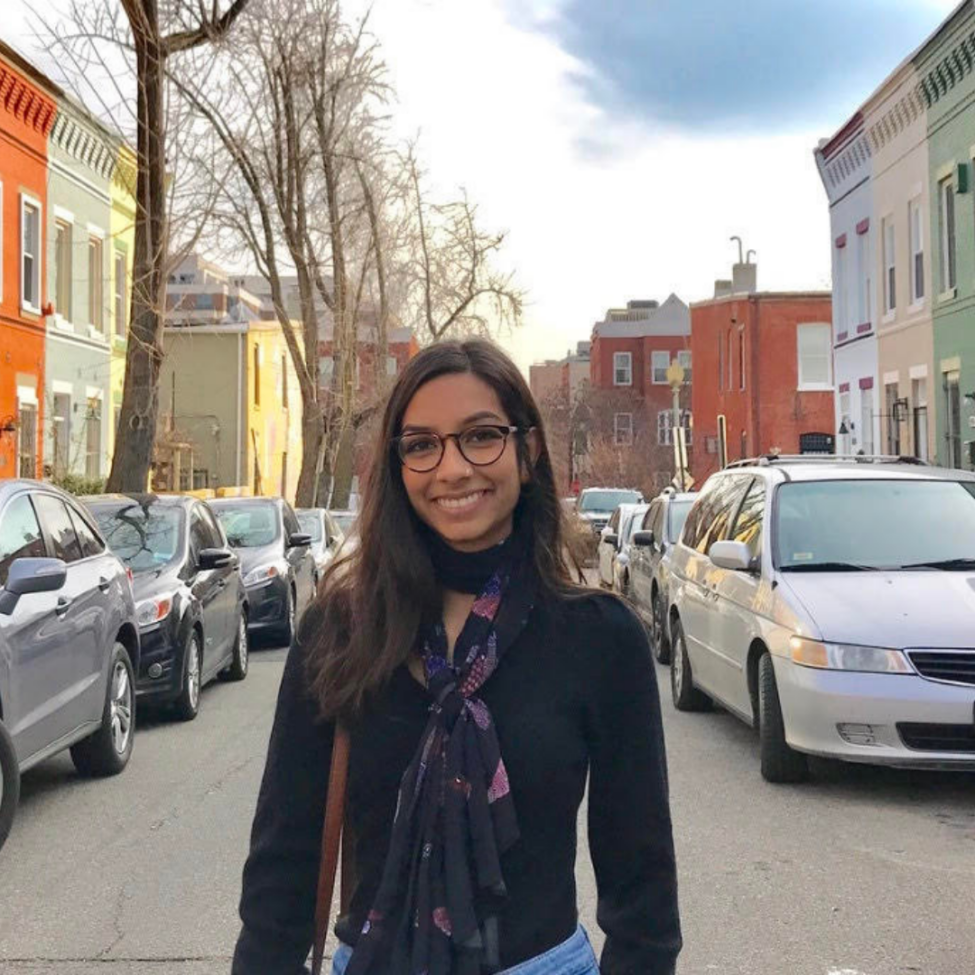
Rittika Pandey
She/Her | Austin, TX
Development Associate at MOVE Texas
▼ How do you organize in your community?
Throughout college, I was an active member of the Asian Desi Pacific Islander Coalition (ADPAC) on campus. That was what allowed me to be part of a community of other like minded Asian-Americans interested in understanding social justice, voting rights, and the cultural issues that we face as a collective community in the US. After graduating, I saw working for MOVE as an opportunity to continue those discussions and activism beyond my immediate community and work in collaboration with other communities to ensure we were building a better Texas!
▼ How does your identity and heritage influence your organizing work?
I come from a family of organizers, educators, and artists, so activism has always been a huge part of my identity. The women in my family have been vocal advocates for social justice causes in India for generations and being the first generation of women in my family to be in America affords me an entirely different privilege in the organizing space. I am able to work in an intersectional capacity where I am not just uplifting those that are like me, but all other communities that face challenges in the US, but specifically Texas. Working closely with Black, Latinx, Indigineous, LGBTQ+, and other marginalized communities has instilled a stronger sense of solidarity with the causes I have always advocated for within my own community.
▼ When speaking directly with young AAPI voters, what do they say are the most important issues to them? What matters to you?
Many young AAPI are not politically active and that unfortunately often translates at the polls. They are usually not as engaged because they feel that the issues don’t apply or don’t matter to them, but that’s definitely not true. When I would register AAPI students to vote on campus I would focus on highlighting issues around immigration, education, and healthcare, as those are the areas that often affect the AAPI community most. All of those issues matter to me deeply, but I also view criminal justice reform and climate change as extremely pressing issues in the US that do affect the AAPI community more than they would normally think. Bringing those issues to their attention also helps get young AAPI voters engaged and active in politics.
▼ Is there a lot of AAPI representation in the communities you organize in? How does that impact how you organize? What are the challenges and opportunities because of this?
Unfortunately, I would say there really is not a lot of AAPI representation in the communities I organize in. Beyond the AAPI coalitions I am part of, the participation of AAPI individuals in the general organizing sphere is often limited. As a result, I am sometimes one of the only ones representing us in these spaces. That is a challenge at times because AAPI issues are not then brought to the forefront of discussions and our community also cannot be as engaged with the intersectional ways in which social justice can work in a state as diverse as Texas. However, being one of the few AAPI individuals in a space that has mostly individuals from other marginalized communities has given me an incredible perspective on how I can use my voice to uplift theirs. I love being part of diverse organizing efforts because I am constantly learning so much from the folks in those communities and I am always glad to be part of anything that will bring BIPOC or LGBTQ+ voices forward.
▼ There was a massive jump in AAPI voter turnout last cycle. How did your work relate to this? Why do you think there has been such an increase in young AAPI voter turnout?
I believe the work MOVE did had a huge impact on bringing young people of all communities to the polls! I do think that the increase of participation from the AAPI community, specifically young voters, was partly due to an increase in social media activism and the spread of resources. That had a huge impact for many young people this election and I think it really helped bring young people into the political sphere in a way that made these issues approachable for them.
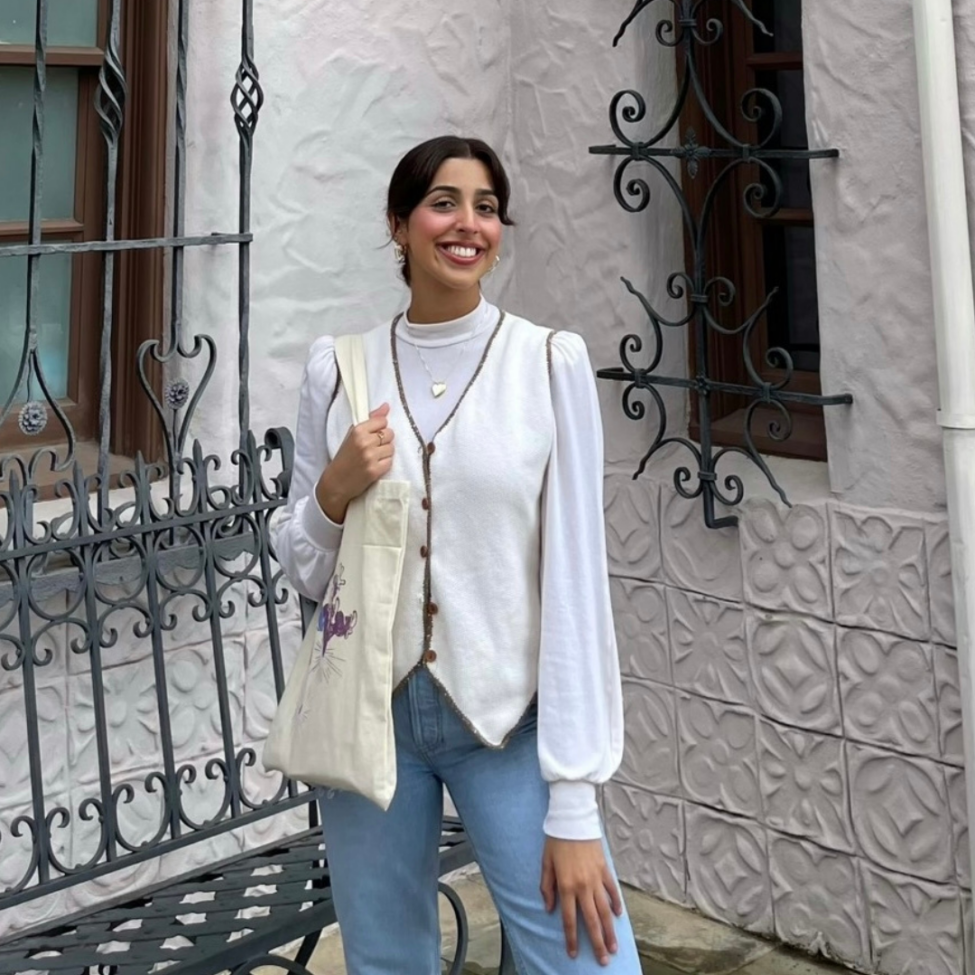
Zaha Khawaja
She/Her | SanAntonio, TX
Executive Intern at MOVE Texas
▼ How do you organize in your community?
I definitely still have a long way to go, in terms of learning how to be an effective organizer, but MOVE Texas has been influential in my journey to becoming one. Being a former Field Organizing Intern and current Executive Intern for MOVE, my time here has taught me how to organize within a traditional and nontraditional scope. Formerly working in the field has taught me the importance of engaging in meaningful conversations with my community. I would go from college campus to campus in San Antonio and talk to young students about local issues that matter to them. This would help foster interactions that emphasize youth action in local and national politics. These conversations would extend beyond the ballot box and really hone in on issues that impact our community on the daily, from housing to environmental justice rights. Moreover, I’m currently organizing in a more nontraditional context, one that I would say is overlooked within nonprofits. As an Executive Intern, I focus my efforts on supporting the behind-the-scenes of how a nonprofit, like MOVE, functions. This position has really taught me how fundamental each department within the organization is. I have learned that one does not have to necessarily be out in the field to do organizing work, but can also carry out administrative tasks that ensure the building of relationships and fulfill the vision of the organization.
▼ How does your identity and heritage influence your organizing work?
My identity and heritage influence the organizing work I do immensely. Being a first generation South Asian, Pakistani-American woman has taught me the challenges my community faces daily. It has also taught me how these challenges intersect within other marginalized communities (Black, Indigenous, Brown, Latinx, LGBTQ+ etc.) in America and globally. These negative perceptions have made me aware of how much work still has to be done to liberate our communities to ensure justice for all. My identity will always play an impactful role in the organizing work that I do and helps me to better understand why we need to abolish the oppressive systems we have in place.
▼ When speaking directly with young AAPI voters, what do they say are the most important issues to them? What matters to you?
When speaking directly with young AAPI voters, some of the most important issues to them are rooted in the feelings of displacement and loss of identity they feel. I have noticed how the AAPI community has had a difficult time in navigating their heritage and truly embracing it, because doing so causes isolation within society. Additionally, the influx of targeted racial injustices has been harmful to the AAPI community in being able to live their lives safely and comfortably. Personally, forming solidarity with other marginalized communities is something that matters to me. I would like individuals within the AAPI community to realize that the issues they face are not unique to them. These injustices cross borders and are rooted in imperialism, capitalism, colonialism etc. It is important that we highlight this, in order to empower people and sustain grassroots movements globally.
▼ Is there a lot of AAPI representation in the communities you organize in? How does that impact how you organize? What are the challenges and opportunities because of this?
I believe AAPI representation is still limited within the communities I organize in, and for the most part, the limited representation that is available simply appeases the oppressive systems we have in place. I feel as though this lack of representation really discourages people to be civically engaged. However, I am more hopeful with younger generations challenging the narrative of representation and what it means to them. The youth are critically engaging with politicians and shifting the discourse of how representation does not mean much if the people “representing you” assimilate and play a role in passing harmful policies both locally and globally.
▼ There was a massive jump in AAPI voter turnout last cycle. How did your work relate to this? Why do you think there has been such an increase in young AAPI voter turnout?
As aforementioned, I feel as though younger generations are engaging more critically with politics. They recognize the crucial role elections, specifically municipal elections, play in shifting power to marginalized communities. MOVE has done an amazing job in ensuring that there has not only been an increase in voter turnout within underrepresented communities but that this advocacy goes beyond the ballot box.
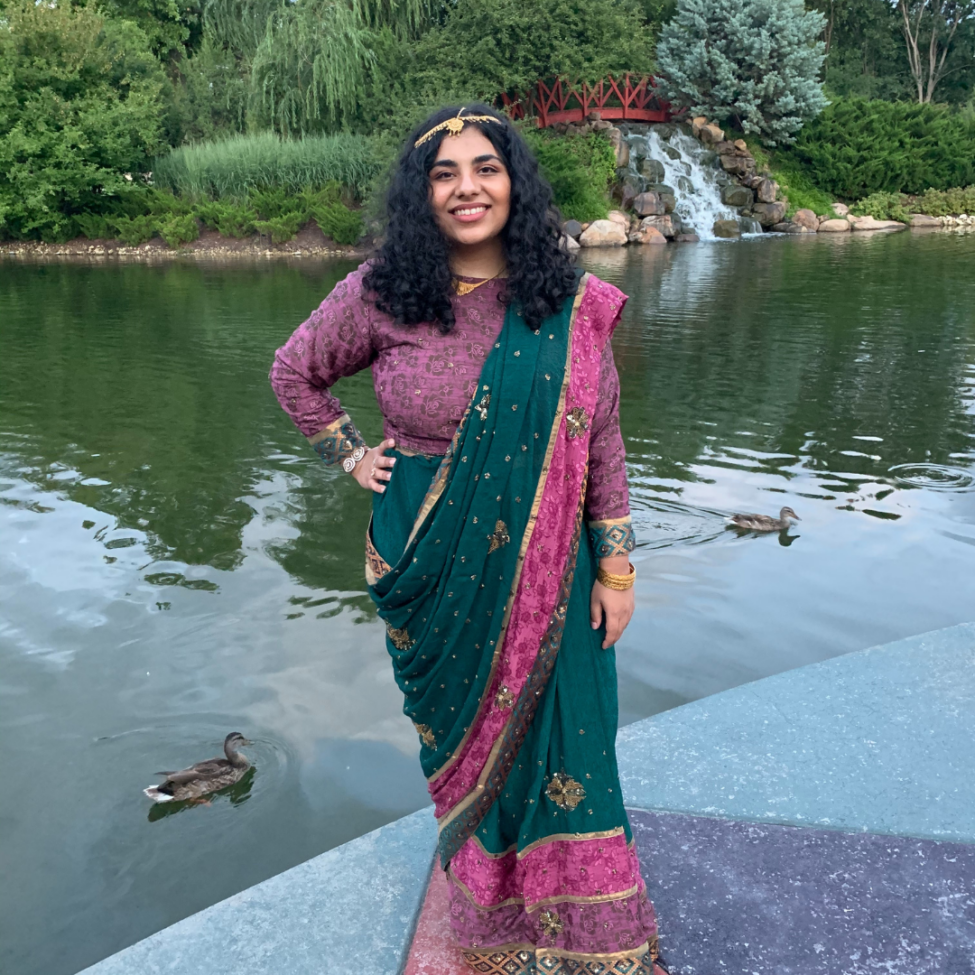
Ziya Joy
They/Them | Durham, NC
Youth Engagement Organizer at North Carolina Asian Americans Together (NCAAT)
▼ How do you organize in your community?
I am the Youth Engagement Coordinator at North Carolina Asian Americans Together. I develop and execute much of our programming from monthly workshops that help educate, engage, and uplift high school and college aged Asian American youth to specific education and skill-building opportunities like our Youth Leadership Institute for high school students. I will also be overseeing our internship program which is a paid part-time internship through NCAAT that gives young people the chance to develop their skills and experiences in community engagement, communications, youth organizing, and voter engagement & advocacy in the context of Asian American social justice work.
▼ How does your identity and heritage influence your organizing work?
As someone of Bangladeshi descent, I think a lot about liberation struggles. Bangladesh gained independence in 1971 through a Liberation War after surviving a brutality of partition and a genocide by the Pakistani army. The politics of postcolonial states are complex and troubling, but these resistance movements give me hope in the global fight against oppression.
Admittedly, it can be difficult navigating an identity that has next to no visibility. But I have taken that space to find my own way, lean into a process of perpetual learning, and find community and recognition in people whose struggles are different from but connected to my own.
▼ When speaking directly with young AAPI voters, what do they say are the most important issues to them? What matters to you?
A lot of young Asian Americans that we work with have told me about their desire to be in solidarity with other communities of color in working towards racial justice, their passion for environmental justice, and their broader hope for a more socially just world.
Personally, I am deeply invested in racial justice, which to me must also include internationalism, anti-imperialism, and anti-colonialism. More than anything, I wish to see a world where all of us can be safe, have our needs met, and thrive.
▼ Is there a lot of AAPI representation in the communities you organize in? How does that impact how you organize? What are the challenges and opportunities because of this?
NCAAT works primarily within the Asian American community. I think this allows us to really organize and strategize with an Asian Americans base in mind. We’re given the space to think about our language barriers, our different cultural issues, our unique immigration stories and challenges, disparities within our communities, and how data collection impacts our community members. It’s really beautiful and exciting to have the time and resources to do that. At the same time, it can be intense to feel like one of the only groups doing this work, so the goal is to definitely see more Asian Americans take up all kinds of organizing work.
▼ There was a massive jump in AAPI voter turnout last cycle. How did your work relate to this? Why do you think there has been such an increase in young AAPI voter turnout?
I am a more recent addition to the NCAAT team, so I was not involved in NCAAT’s brilliant GOTV efforts. However, I am still incredibly proud of the work that our staff members were able to do in helping push those numbers up. I think a lot of non-profit workers and community organizers have really committed to the long-term work of political education and base-building within our communities, and it shows!
